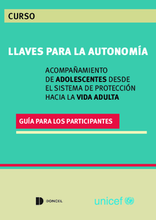Demographic Data
|
Sources: World Bank, UNICEF, UNDP HDR 2015, DHS 2011 |
Displaying 11641 - 11650 of 14389
Ghanaian undercover investigative journalist, Anas Aremeyaw Anas, and his team posed as volunteers at a children’s home in Awutu Bawjiase in the Central Region of Ghana and uncovered abuses and corruption occurring in the orphanage. The abuses have been reported to the Ministry of Gender, Children and Social Protection and the home as been shut down.
“OAfrica condemns the criminal abuse Anas has revealed at Bawjiase Orphanage and calls for the complete eradication of orphanages in the country by 2020.”
In 2014, BCN was invited to join the Child Protection Monitoring and Evaluation Reference Group (CP MERG) as a Core Member and to co-chair one of its newest Technical Working Groups, Children and Care.
A recent study from the Bucharest Early Intervention Project has revealed that children who were placed in institutional care have an increased risk of demonstrating behaviors associated with autism, such as impaired social communication, according to the article.
A new study from the Children's Advocacy Institute at the University of San Diego School of Law presents finds that the United States federal government is not adequately enforcing child welfare laws and standards and that individual states are not adequately complying with these laws, says the article.
The child welfare system was created to care for abused and neglected children. But too often, teenagers are landing in the system because they simply aren’t getting along with their parents. This paper traces Casey’s efforts to learn from communities that are preventing teens from landing in the system by helping families while the teen remains at home. A survey of the states, interviews with experts, secondary research and visits to several communities show common elements of successful programs.The paper presents information on related laws and policies, funding sources and programs for families while including the infrastructure and services needed to support such initiatives.
El presente curso surge del Acuerdo de Cooperación suscripto en 2014 entre UNICEF Argentina y la Asociación civil por los derechos de niños niñas adolescentes y jóvenes Doncel que tiene por objetivo principal contribuir a desarrollar un modelo de acompañamiento integral para adolescentes residentes en los hogares asistenciales de las provincias argentinas de Misiones, Jujuy, Chaco, Santa Fe y Tucumán en transición del sistema de protección hacia la autonomía y la vida adulta.
Esta Guía reúne una serie de programas, prácticas y políticas públicas que resultaron en la garantía del derecho a la convivencia familiar y comunitaria de niñas y niños en su primera infancia. En particular, se caracterizan por ser innovadoras o por haber obtenido buenos resultados en la protección y la restitución de este derecho. Las experiencias recopiladas abarcan programas, proyectos e iniciativas públicas, privadas o mixtas de fortalecimiento familiar, provisión de cuidados alternativos, y de reintegración familiar.
This article analyses on the phenomenon of orphanage tourism/ childcare tourism in Cambodia and its social and economic impacts by interviewing the managers directors or volunteer coordinators of nine residential care facilities and to develop recommendations and guidelines for the residential care centres and volunteer organisations to improve the volunteering practice in the future.
Muhammadiyah, a member of Family for Every Child, has launched a new alliance with fellow Indonesian NGOs, to encourage the use of family-based alternative care for children and promote the use of institutional care only as a last result for children in Indonesia.




